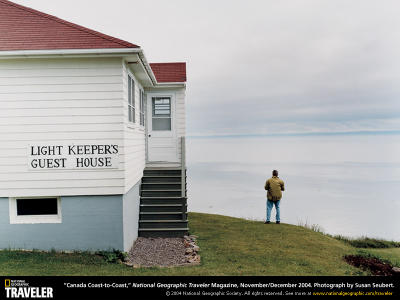
There is already talk of sealing borders in Asia (for the unitiated that means nobody enters, nobody leaves). If H5N1 mobilises (well, it is mobilised, let's be more accurate, and say manifests in our reality) then there will be swift actions to keep people in place.
I am watching the news very carefully because I would hate to be unable to leave when I decide to. Of course, once you or I know there's a serious risk, so does everyone else, and then it's too late. Or perhaps you have a few hours of open window before the airports close. What also alarms me is my flight 'home' takes me via Hong Kong...
If you read my 'heavy' article below (Where Can We Go?), this article will show you its relevance. And the importance of maintaining a sense of urgency.
Europe, Asia in bird flu clampdown
(CNN) -- Europe and Asia are ordering clampdowns on the movements of birds and people as the scare over avian flu intensifies.
One of Asia's busiest borders might be sealed if the deadly H5N1 bird flu starts spreading from human to human, according to a media report.
Meanwhile, the European Union placed restrictions on bird markets and shows while urging nations to vaccinate zoo birds as part of increased measures to head off the spread of the disease.
Veterinary experts say there must be an EU-wide ban on the collection of birds for markets, shows, exhibitions and cultural events, except where national authorities gave specific permission, the EU said in a statement released late Thursday.
And in Thailand a 7-year-old boy whose father died two days ago from the lethal H5N1 strain of avian influenza has tested positive for the same strain but is in recovery, hospital officials said Friday.
Hong Kong's cross-over points with mainland China might also be sealed in the event of such an outbreak, the South China Morning Post reported Friday.
"If it is proven to be human-to-human transmission, then we have to be very careful and we might have to close the border" with the mainland, Hong Kong Secretary for Health York Chow was reported as saying.
Hong Kong has been a hotbed of health alerts in recent years, including the outbreak of the SARS disease in 2003, which killed almost 300 people there.
According to the World Health Organization, there have been 118 cases of bird flu in humans of whom 61 have died, all in Asia.
The H5N1 bird flu strain also infected 18 people in Hong in 1997, six of whom died.
Consequently, Hong Kong's entire poultry population, estimated at around 1.5 million birds, was destroyed within three days. This is thought to have averted a pandemic.
The infected boy, from Kanchanaburi province, about 50 miles west of Bangkok, was transferred to a hospital in the capital after he began exhibiting flu symptoms.
His father, Bangon Benkapak, 48, died Wednesday of the same strain, bringing Thailand's total of bird flu deaths to 13 since 2003. Benkapak's death, however, was the country's first in 2005.
Officials said the elder Benkapak was admitted to a hospital October 13 with flu symptoms after he slaughtered, cooked and ate a chicken 11 days earlier. The 7-year-old apparently helped his father.
The first two tests conducted on the boy to detect the H5N1 strain were negative, officials said, but the first test conducted in Bangkok was positive.
Meanwhile, two people in Indonesia suspected of having the deadly strain of bird flu have tested negative, a health official in Jakarta said Friday. Blood samples from the people will be sent to the WHO lab in Hong Kong to verify the results.

Wanted a Leader for America
Noam Chomsky
Khaleej Times, October 5, 2005
As the survivors of Hurricane Katrina try to piece their lives back together, it is all the clearer that a long-gathering storm of misguided policies and priorities preceded the tragedy.
Government failures at home and the war in Iraq found a confluence in Katrina’s wake that graphically illustrates the need for fundamental social change, lest we suffer worse disasters in the future.
In a pre-9/11 report, the Federal Emergency Management Agency had listed a major hurricane in New Orleans as one of the three most likely catastrophes to strike the United States. The others: a terrorist attack in New York and an earthquake in San Francisco.
New Orleans had become an urgent priority at FEMA since January, when the agency’s now-departed director Michael Brown returned from touring the tsunami devastation in Asia.
"New Orleans was the No. 1 disaster we were talking about," Eric L. Tolbert, a former FEMA official, told The New York Times. "We were obsessed with New Orleans because of the risk."
A year before Katrina hit, FEMA conducted a successful simulated-hurricane drill for New Orleans, but FEMA’s elaborate plans were not implemented.
The war played a role in the failure. National Guard troops that had been sent to Iraq "took a lot of needed equipment with them, including dozens of high-water vehicles, Humvees, refuelling tankers and generators that would be needed in the event a major natural disaster hit the state," The Wall Street Journal reported. "A senior Army official said the service was reluctant to commit the 4th brigade of the 10th Mountain Division from Fort Polk, because the unit, which numbers several thousand soldiers, is in the midst of preparing for an Afghanistan deployment."
Bureaucratic manoeuvring also trumped the risk of natural disaster. Former FEMA officials told The Chicago Tribune that the agency’s capabilities were "effectively marginalised" under President George W. Bush when the agency was folded into the Homeland Security Department, with fewer resources and extra layers of bureaucracy, a "brain drain" as demoralised employees left and a completely unqualified Bush political crony put in charge.
Once a "tier-one federal agency," FEMA now isn’t "even in the back seat," Eric Holdeman, director of emergency management in King County, Washington, told The Financial Times. "They are in the trunk of the Department of Homeland Security car."
Bush funding cuts in 2004 compelled the Army Corps of Engineers to reduce flood-control work sharply, including badly needed strengthening of the levees that protected New Orleans. Bush’s 2005 budget called for another serious reduction — a speciality of Bush-administration timing, much like the proposed sharp cut in security for public transportation right before the London bombings in July 2005.
A disregard for the environment was another factor in this perfect storm. Wetlands help reduce the power of hurricanes and storm surges, but Sandra Postel, a water-policy expert, wrote in The Christian Science Monitor that wetlands were "largely missing when Katrina struck," in part because "the Bush administration in 2003 effectively gutted the ‘no net loss’ of wetlands policy initiated during the administration of the elder Bush."
The human toll of Katrina is incalculable, especially among the region’s poorest citizens, but a relevant number is the 28-per cent poverty rate in New Orleans — more than twice the national rate. During the Bush administration the US poverty rate has grown, and welfare’s limited safety net has been weakened further.
The effects were so striking that even the right-wing media were appalled by the scale of the class-based and race-based devastation. While the media were showing vivid scenes of human misery, the back pages reported that Republican leaders wasted no time in "using relief measures for the hurricane-ravaged Gulf coast to achieve a broad range of conservative economic and social policies," The Wall Street Journal reported.
Those agenda-promoting measures include suspending rules that require payment of prevailing wages by federal contractors and providing displaced schoolchildren with vouchers — another underhanded blow at the public-school system. They included lifting environmental restrictions, "waiving the estate tax for deaths in the storm-affected states" — a great boon for the population fleeing New Orleans slums — and in general making it clear once again that cynicism knows few bounds.
Lost in the flood is a concern for the needs of cities and for human services. The larger agenda of enhancing global domination and domestic concentrations of wealth and power takes precedence.
The images of suffering in Iraq, and in the aftermath of Hurricane Katrina, could hardly depict the consequences more dramatically.

Republican Bartlett suggests that America needs to redefine success. "Right now, success is judged by how much energy is used. Think about it, the person who is successful has a really big car; they take really expensive vacations; they have a really big house. We have got to have another yardstick by which we measure success because success can't continue to be measured by how much energy we use." He further laments, "we think God gave us the right to this quality of life."
No comments:
Post a Comment